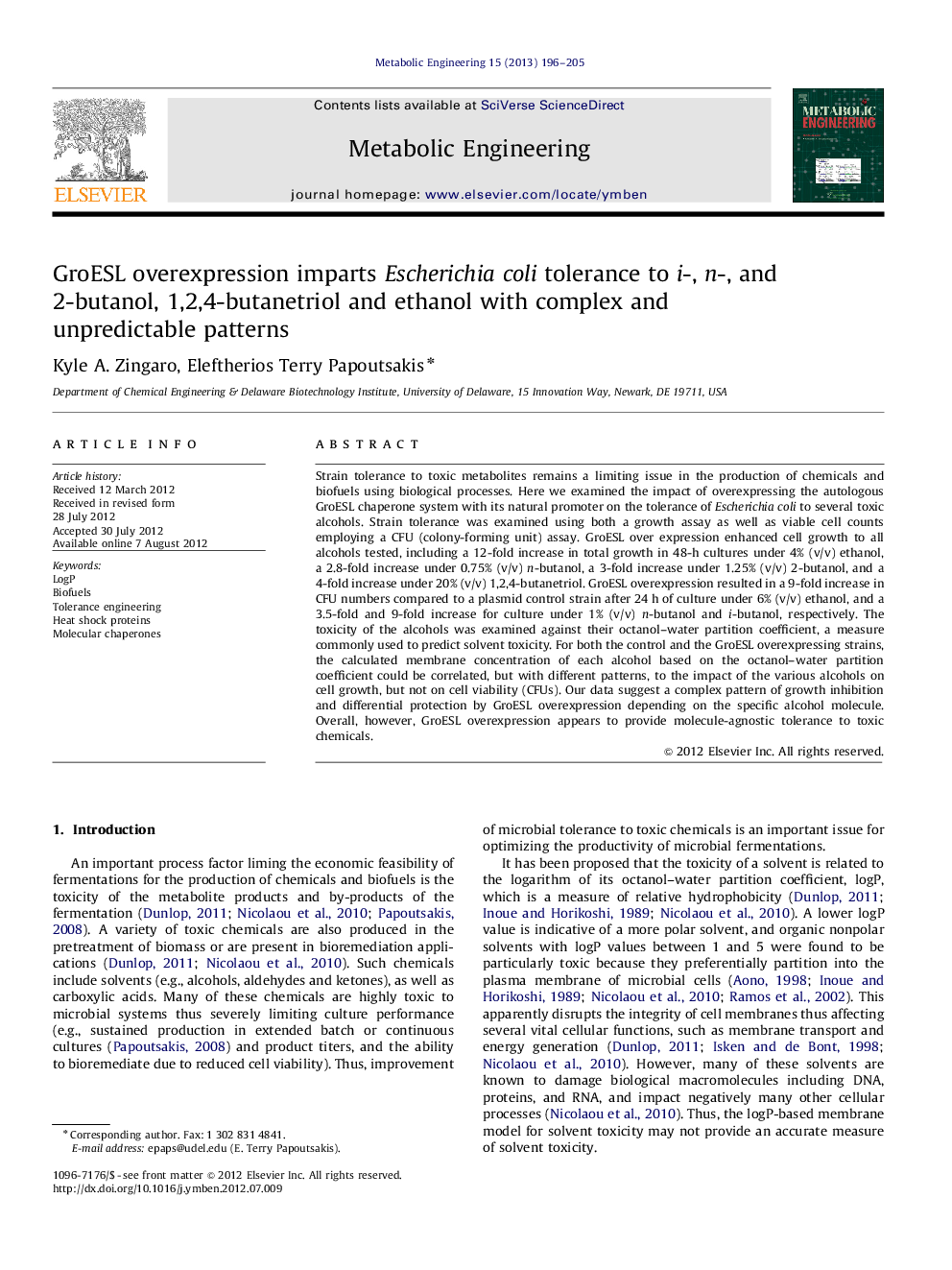| Article ID | Journal | Published Year | Pages | File Type |
|---|---|---|---|---|
| 31663 | Metabolic Engineering | 2013 | 10 Pages |
Strain tolerance to toxic metabolites remains a limiting issue in the production of chemicals and biofuels using biological processes. Here we examined the impact of overexpressing the autologous GroESL chaperone system with its natural promoter on the tolerance of Escherichia coli to several toxic alcohols. Strain tolerance was examined using both a growth assay as well as viable cell counts employing a CFU (colony-forming unit) assay. GroESL over expression enhanced cell growth to all alcohols tested, including a 12-fold increase in total growth in 48-h cultures under 4% (v/v) ethanol, a 2.8-fold increase under 0.75% (v/v) n-butanol, a 3-fold increase under 1.25% (v/v) 2-butanol, and a 4-fold increase under 20% (v/v) 1,2,4-butanetriol. GroESL overexpression resulted in a 9-fold increase in CFU numbers compared to a plasmid control strain after 24 h of culture under 6% (v/v) ethanol, and a 3.5-fold and 9-fold increase for culture under 1% (v/v) n-butanol and i-butanol, respectively. The toxicity of the alcohols was examined against their octanol–water partition coefficient, a measure commonly used to predict solvent toxicity. For both the control and the GroESL overexpressing strains, the calculated membrane concentration of each alcohol based on the octanol–water partition coefficient could be correlated, but with different patterns, to the impact of the various alcohols on cell growth, but not on cell viability (CFUs). Our data suggest a complex pattern of growth inhibition and differential protection by GroESL overexpression depending on the specific alcohol molecule. Overall, however, GroESL overexpression appears to provide molecule-agnostic tolerance to toxic chemicals.
► GroESL overexpression increases tolerance to multiple alcohol stresses. ► GroESL overexpression increases both cell viability and growth under solvent stress. ► Octanol–Water Partition Coefficients do not correlate to solvent toxicity. ► GroESL overexpression generates platform strain for biofuel production.
